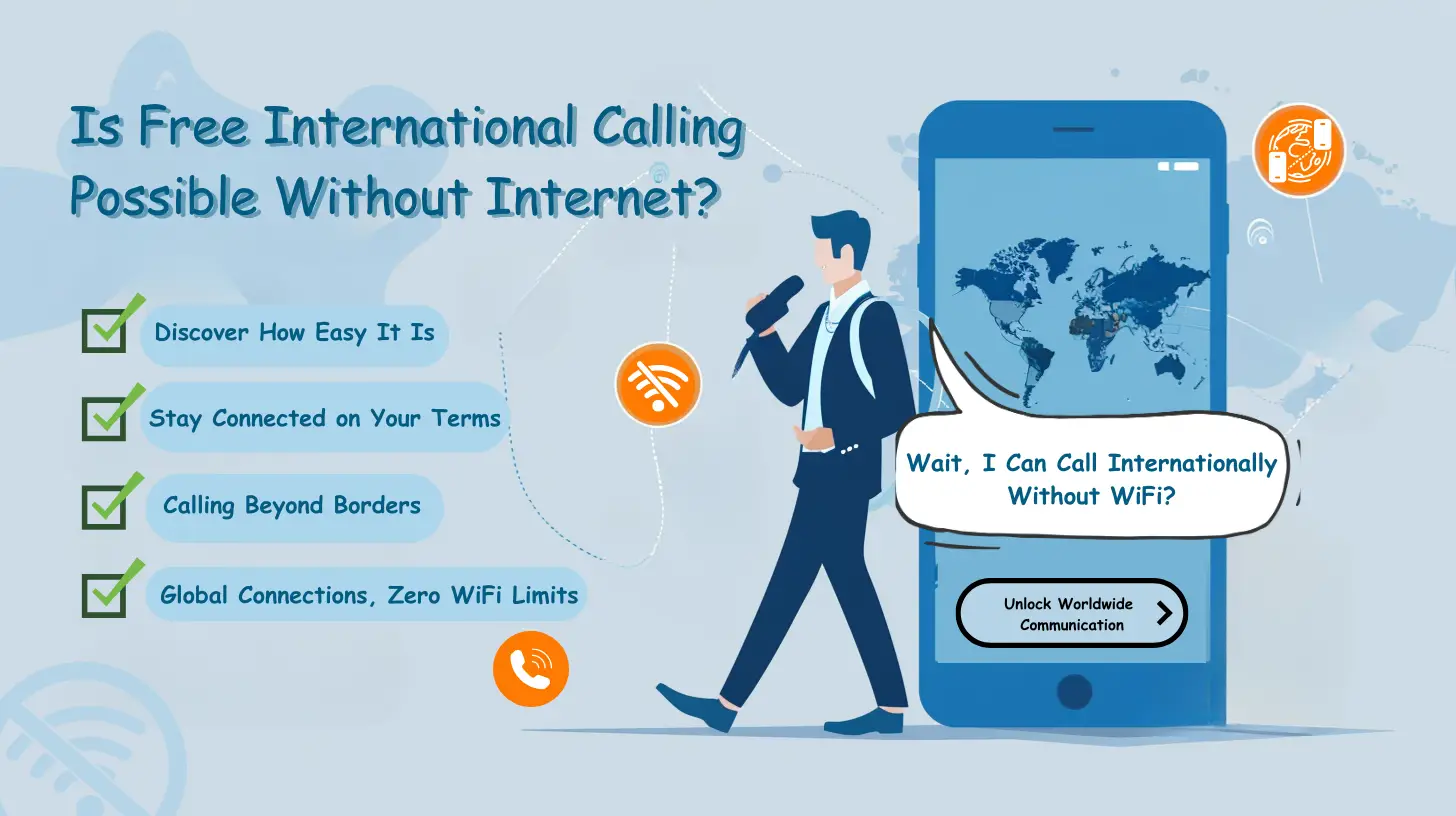Essential Security Measures for VoIP Termination
As the telecommunications industry continues to advance, so do the security threats. VoIP termination has become a popular choice for businesses looking to manage costs while maintaining a high level of service. However, with this new technology comes new risks, and it is essential to understand the measures that one should take to safeguard telecommunication exchanges. This article will provide insight into the various security measures that individuals and businesses should consider when utilizing VoIP wholesale termination.
With the right security measures in place, individuals and businesses alike can feel confident in their decision to utilize VoIP termination. Let’s begin by examining an overview of wholesale termination and why security measures are crucial to its use.
Understanding VoIP Termination
VoIP termination stands for least-cost routing. As the name suggests, it is a cost-saving mechanism that is utilized in the telecommunications industry. This method is used to route calls based on the lowest-cost carrier available. It means that the system will choose the cheapest route available to connect two points without compromising on call quality.
VoIP termination is used by service providers to minimize their expenses while catering to the growing demand for telecommunication services. This mechanism works by selecting the most cost-effective route among several carriers, thus ensuring efficient transmission of voice and data traffic.
There are numerous benefits to using voice termination for telecommunication exchanges. One of the primary advantages is its ability to minimize costs while enhancing service reliability. It allows service providers to provide more affordable rates to customers while maintaining high-quality service levels.
How VoIP Termination is Utilized in the Telecommunication Industry
In the telecommunications industry, VoIP termination is predominantly used for routing international traffic. This is because numerous carriers offer considerably different rates for the same destination. These costs can vary depending on the location of the service provider and the number of calls being made.
Voice termination systems work by analyzing various elements, such as connection quality, call volume, location, and the cost of the carrier. The system can then choose the best route for the call based on these factors, ensuring maximum reliability, cost-effectiveness, and call quality. Service providers utilize this technology to provide the best possible service at the lowest possible cost.
The Benefits of Wholesale VoIP Termination
Wholesale VoIP termination has become an attractive option for businesses seeking to enhance their telecommunication operations. One of the most significant benefits of VoIP wholesale is cost savings.
Because wholesale VoIP providers purchase call minutes in bulk, they can offer more competitive prices to customers. In addition, VoIP offers increased scalability, allowing businesses to adapt their communication infrastructure to changing demand, making it a flexible and customizable solution.
Another key benefit of wholesale VoIP is improved call quality. By leveraging high-quality codecs, VoIP termination providers can offer crystal-clear audio that surpasses traditional telephony services.
Overall, wholesale VoIP termination offers businesses a great opportunity to improve their telecommunication capabilities while reducing costs and improving call quality. It’s easy to see why it has become such a popular option in today’s business landscape.
Exploring VoIP Wholesale Termination
VoIP wholesale termination serves as the final stage of routing a call from the source to its destination. It is a crucial component of VoIP telephony that enables the transmission of voice data across various networks and carriers.
VoIP wholesale providers facilitate the passing of voice traffic from one carrier to another by taking advantage of their established relationships with numerous operators. These providers operate on a pay-per-use or minute-of-use basis, where users purchase scheduled minutes at agreed-upon prices.
Generally, VoIP wholesale providers offer several routing options, including direct termination, IP-to-IP termination, and TDM-to-IP termination. Direct termination is the most common routing option that involves the direct transmission of voice packets from a carrier to its destination. IP-to-IP termination, on the other hand, involves the passing of voice packets between two global IP-based networks.
TDM-to-IP termination uses legacy TDM equipment to transmit voice traffic to a carrier’s existing IP infrastructure, enabling them to route voice traffic internationally.
The inherent flexibility, cost-effectiveness, and reliability make VoIP an attractive option for carriers and enterprises seeking to reduce voice traffic expenses and maintain superior voice quality.
Understanding VoIP Termination Services
VoIP termination services encompass a range of offerings that cater to the telecommunication industry’s needs, including call origination, termination, and reselling services. Call origination services refer to the service that allows businesses to receive incoming calls from the public switched telephone network (PSTN) on their VoIP networks. Conversely, call termination services enable businesses to route outbound calls from their VoIP networks to the PSTN.
Reselling services, on the other hand, refers to VoIP termination providers who lease network capacity to businesses that intend to resell the capacity to other service providers or retail customers.
VoIP service providers offer these wholesale services to businesses such as resellers, carriers, call centres, and other telecommunication enterprises that require large-scale telephony services. These services provide cost-effective solutions with increased functionality when compared to traditional telephony.
By leveraging these VoIP services, businesses can reduce their telecommunication costs and adopt a more flexible, scalable telephony model that caters to their specific needs.
Factors Affecting VoIP Termination Rates
VoIP Termination rates are influenced by several factors that affect the cost of delivering voice traffic to its final destination. These factors include call volume, destination, and quality of service.
Call Volume
The volume of calls that are routed through a VoIP network can have a significant impact on termination rates. Higher call volumes typically require more capacity, which can increase operating costs for the providers. As a result, providers often charge higher termination rates for high-volume traffic to offset the additional costs.
Destination
The destination of the call can also affect termination rates. In some locations can be more expensive to terminate calls due to regulatory fees or higher costs associated with working with local carriers. Providers must factor these costs into their termination rates, which can vary depending on the destination of the call.
Quality of Service
The quality of service (QoS) provided by a VoIP network can impact termination rates as well. Providers that offer higher QoS, such as better call completion rates and fewer dropped calls, can charge higher termination rates than providers that offer lower QoS. Additionally, providers may charge different rates based on the level of QoS required by the customer.
Overall, understanding these factors that influence VoIP termination rates can help customers make informed decisions when selecting a provider. Providers that offer high-quality service and competitive rates are more likely to attract and retain customers in the ever-evolving VoIP industry.
Security Risks in VoIP Termination
VoIP termination is not immune to security risks, and it is essential to safeguard telecommunication exchanges from potential threats. Some of the most common security risks include fraud, hacking, and unauthorized access, which can lead to a loss of revenue and reputation for voice termination providers. The interconnected nature of VoIP networks and the use of the internet as a transmission medium increase the vulnerability of these networks to cyberattacks.
One common security threat in voice termination is spoofing, where attackers disguise their identities and pretend to be legitimate operators to gain access to networks. Another risk is the creation of fraudulent routes, which can divert traffic to unauthorized operators and lead to substantial financial losses.
Aside from these risks, hackers can launch distributed denial-of-service (DDoS) attacks, flood networks with traffic, and disrupt service. Unauthorized access to call records, customer databases, and billing information can also compromise the privacy and security of wholesale voice networks.
Protecting VoIP Networks from Security Risks
To prevent security breaches, wholesale voice Termination providers should implement encryption protocols, such as Secure Real-Time Transport Protocol (SRTP), to secure telecommunication exchanges. Robust authentication methods and access control systems should also be in place to protect against unauthorized access to networks.
Furthermore, monitoring and intrusion detection systems can identify and prevent potential security breaches. Network firewalls and traffic filtering mechanisms can protect against malicious traffic and unauthorized access. Regular patch management and secure system configuration should also be implemented to mitigate potential vulnerabilities.
Employee training and raising awareness about security best practices are also crucial to ensuring a secure voice termination operation. Regular certification and security audits can also improve the integrity of wholesale termination networks.
Implementing Encryption Protocols
Encryption is critical to securing telecommunication exchanges in wholesale voice termination. One of the most commonly used encryption protocols is the Secure Real-Time Transport Protocol (SRTP), which provides confidentiality, authentication, and integrity protection for VoIP communications.
By encrypting the voice packets, SRTP effectively prevents the eavesdropping and interception of sensitive information transmitted over the network. It also ensures that the data cannot be tampered with or modified in transit.
Implementing encryption protocols such as SRTP can help voice termination providers protect their networks against security threats and potential data breaches. By securing the telecommunication exchange, voice termination companies can ensure the privacy and safety of their customers’ data.
Authentication and Access Control
Authentication and access control are critical components in protecting VoIP termination networks from unauthorized access. Strong authentication methods, such as two-factor authentication and biometric authentication, should be implemented to verify the identity of users. Access control mechanisms, such as firewalls, virtual private networks (VPNs), and role-based access control (RBAC), can be used to restrict access to authorized personnel only.
Implementing strong password policies, regular changes, and multi-factor authentication can significantly increase the security level.
Risk Mitigation Measures
- Implement two-factor authentication and biometric authentication methods to ensure that only authorized personnel can access the network
- Deploy firewalls to restrict access to authorized personnel only
- Use virtual private networks (VPNs) to secure communications and data transmission
- Implement Role-Based Access Control (RBAC) to manage permissions and restrict access to sensitive information
By implementing robust authentication methods and access control systems, wholesale termination networks can operate with a much lower risk of unauthorized access and other related security breaches.
Monitoring and Intrusion Detection
In wholesale termination, monitoring and intrusion detection play a critical role in ensuring the security of telecommunication exchanges. By constantly monitoring network traffic and detecting any unusual behaviour, businesses can quickly identify and prevent security breaches that could put their networks at risk.
Using intrusion detection systems that are specifically designed for wholesale call termination, such as Snort, can provide businesses with additional security measures against malicious attacks. These systems can detect and analyze network traffic, identify potential threats, and issue real-time alerts to alert network administrators.
In addition to being able to recognize threats affecting the network, businesses must ensure that they have implemented robust monitoring systems that track and log all network activities. By collecting this data, businesses can analyze network traffic patterns and quickly identify and respond to potential threats.
Network Firewall and Traffic Filtering
In the voice termination industry, network firewalls and traffic filtering mechanisms play a crucial role in safeguarding telecommunication exchanges from malicious activities and preventing unauthorized access to the network. By setting up a network firewall, companies can restrict access to their SIP termination system, limiting potential breaches.
Moreover, traffic filtering systems can help identify and block unwanted and potentially dangerous traffic, mitigating the risk of cyber threats. These measures are especially important in the wholesale termination industry, where high call volumes and sensitive data are exchanged regularly.
Implementing network firewalls and traffic filtering systems are key components of securing VoIP networks, ensuring efficient and reliable communication while minimizing security risks.
Secure System Configuration and Patch Management
In voice wholesale, secure system configuration and patch management are essential security measures that should be prioritized to prevent unauthorized access and breaches of the network. Optimal configuration and management of software and hardware are crucial to minimize exposure to malicious attacks and to maintain the integrity of the system.
Patches are regularly released to address security vulnerabilities and enhance the performance of the software and hardware. Regularly updating and patching the system is necessary to prevent unauthorized access and malicious attacks on the network. Patch management systems can assist in monitoring and deploying software patches rapidly, ensuring a consistent level of security and protection.
To maintain security, appropriate patch management and an optimal system configuration that supports secure telecommunication exchanges in wholesale voice termination are necessary. Regular reviews of the software environment, system updates, and patches are also necessary to identify and address potential threats.
Therefore, secure system configuration and patch management must be implemented to support robust security protocols in wholesale VoIP environments.
Employee Training and Awareness
As with any security measures, employee awareness and training are crucial in ensuring a secure wholesale call termination operation. Employees should receive comprehensive training on security best practices, including the proper use of authentication methods and access control systems, as well as the identification of potential security risks. By raising employee awareness, a business can create a culture of security that promotes vigilance and prompt reporting of security concerns.
It is also essential to establish clear security policies and guidelines that employees must follow when accessing and using the wholesale SIP termination network. By outlining expectations and consequences for non-compliance, businesses can help ensure that employees are appropriately protecting the network from potential security risks.
Moreover, regular updates and refresher training sessions should be provided to employees to keep them up-to-date with the latest security protocols and policies. This will help ensure that the business remains protected from emerging security threats.
Manufacturers and Service Providers’ Certifications and Audits
Manufacturers and service providers need to obtain relevant certifications and undergo routine security audits to ensure the authenticity and safety of call termination networks. These certifications and audits help entities identify potential vulnerabilities and take necessary precautionary measures to prevent security breaches.
Examples of relevant certifications for voice wholesale termination include ISO 27001, which outlines information security management systems, and SSAE 16 SOC 2, which assesses system compliance. Service providers and manufacturers must also undergo routine audits to evaluate their security protocols and ensure the protection of telecommunication exchanges. These audits help reveal areas of weakness that may require attention and improvement.
Overall, certifications and audits are crucial in maintaining a secure voice wholesale termination operation. It provides customers with the confidence that their telecommunication exchanges are safe and that manufacturers, as well as service providers, have taken the necessary steps to ensure the security of their systems.
Top VoIP Termination Providers
My Country Mobile - Offers competitive rates for VoIP Termination services
Verizon - As one of the largest telecom companies, Verizon offers advanced VoIP solutions through its global network, which covers over 150 countries. Verizon caters to large enterprises, government agencies, and wholesale partners.
Bandwidth - A leading global wholesale provider with a presence in the country through VoIP network coverage and number provisioning. Bandwidth provides VoIP, PSTN, and toll-free call termination.
Rozper - Rozper is a leading international communications enabler with a global VoIP footprint. Their worldwide network covers Europe, the Middle East, Africa, the Americas, and Asia Pacific.
Ace Peak – It offers global voice wholesale termination services with POPs located across the Americas, Europe, and Asia. They provide reliable call routing worldwide.
These providers have the scale, coverage, and technical capabilities required to serve major wholesalers and carriers across different regions. They enable global voice connectivity through their extensive VoIP networks.
Conclusion
Thus, it can be concluded that implementing robust security measures is essential in voice termination to safeguard telecommunication exchanges from potential security risks. Encryption protocols such as SRTP, authentication methods, access control systems, monitoring, intrusion detection, firewalls, traffic filtering, secure system configuration, patch management, employee training and awareness, as well as relevant certifications and audits for manufacturers and service providers, are among the security measures that can be employed to ensure the integrity of wholesale voice termination networks.
By prioritizing security in Wholesale VoIP, businesses can protect their operations from vulnerabilities and potential financial losses associated with security breaches. Therefore, it is recommended that businesses involved in wholesale voice invest in security solutions that satisfy their specific requirements and ensure compliance with relevant regulations.
In conclusion, safeguarding telecommunications exchanges is vital in VoIP termination, and implementing stringent security measures is crucial to achieving this objective.
FAQ
What is VoIP termination?
VoIP termination refers to connecting a voice over IP (VoIP) phone system to the public switched telephone network (PSTN) so that VoIP users can make and receive calls to and from landline and mobile phone users.
Why do I need VoIP termination?
VoIP termination enables VoIP users in an organization to seamlessly call and be called by users on the traditional telephone network. Without it, VoIP systems can only call other IP addresses.
What equipment do I need for VoIP termination?
You need a media gateway to convert VoIP connections to PSTN connections. You may also need an IP-based private branch exchange (IP-PBX) phone system.
Does my Internet bandwidth affect my VoIP call quality?
Yes. VoIP call quality is impacted by your available Internet bandwidth. For optimal quality, ensure you meet bandwidth requirements provided by your VoIP service provider
Can I keep my existing phone numbers with VoIP termination?
Yes, depending on your geographic location, you may be able to port your existing PSTN phone numbers onto the VoIP network via VoIP termination.
What codecs are used for VoIP termination?
Common codecs include G.711, G.729, and G.722. Your service provider will determine the appropriate codec based on call quality requirements.
Does VoIP termination work with both analog phones and IP phones?
Yes. Media gateways used for VoIP termination can connect to both analog and IP-based phones.
How reliable is a VoIP termination connection?
With the right equipment and sufficient bandwidth, VoIP termination offers call quality and reliability on par with traditional phone networks. Proper implementation is key.
Is VoIP termination secure?
Like any network system, proper security measures should be put in place when implementing VoIP termination, like encryption protocols and firewalls. Consult your VoIP service provider on security features.
Does VoIP termination support calling features?
Yes. VoIP termination supports popular calling features customers expect from traditional phone networks, like call forwarding, call waiting, 3-way calling, etc. Features vary by provider.




























